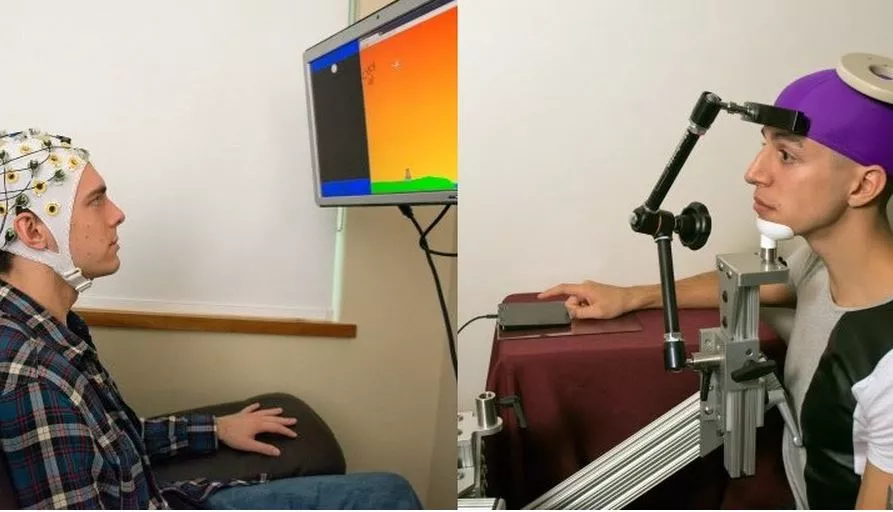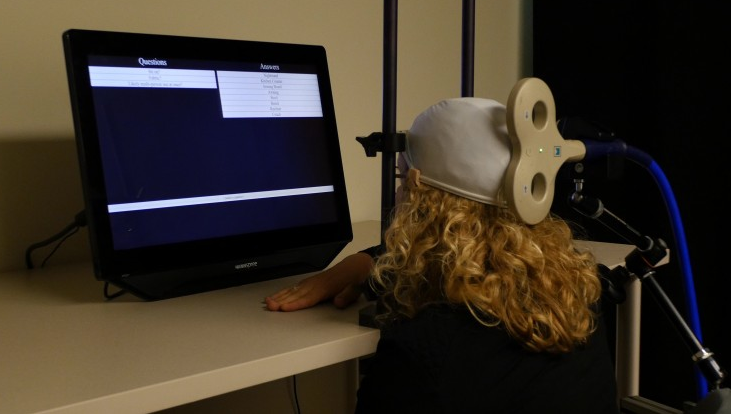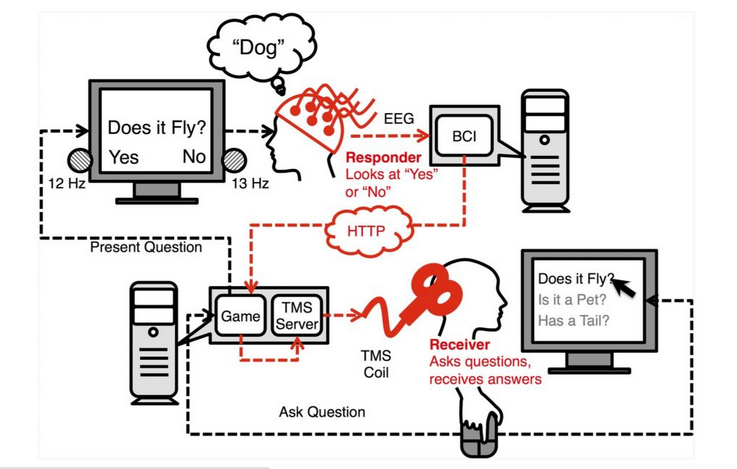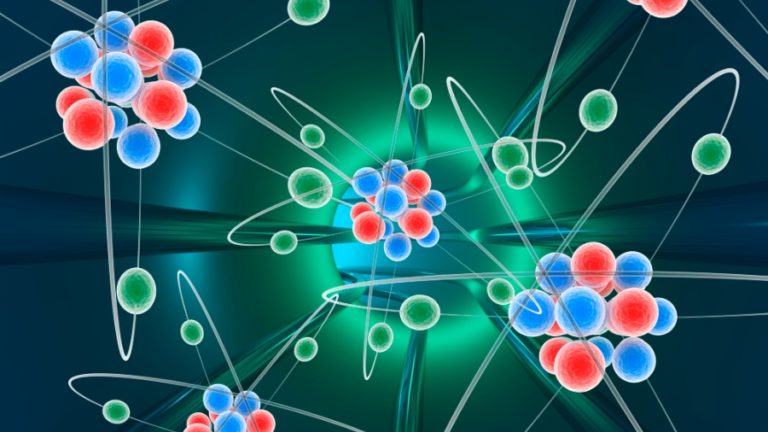Brain Hack: How Scientists Connected One Brain To The Other Over Internet

 Short Bytes: Research on a direct brain-to-brain connection was conducted by the University Of Washington. This was done to enable pairs of participants play a question-and-answer game by transmitting signals from one brain to the other over the Internet.
Short Bytes: Research on a direct brain-to-brain connection was conducted by the University Of Washington. This was done to enable pairs of participants play a question-and-answer game by transmitting signals from one brain to the other over the Internet.
Yes, we are talking about the recent research conducted by the University Of Washington where a direct brain-to-brain connection was used. This was done to enable pairs of participants play a question-and-answer game by transmitting signals from one human brain to the other over the Internet.
Here, take a look at the diagram:
Here’s how they made it big:
- A cap laced with electrodes is placed on the head of Player 1.
- The signals are read by an EEG (electroencephalogram) system.
- This player faces a screen with a “yes” and a “no” side flashing light(with different rates of pulses)
- Miles away, Player 2 is aided with a special magnet at the back of his head, connected to the EEG system over the Internet.
- Player 2 then selects a question from a computer screen. The question is sent to Player 1’s screen. Player 1 looks intently at either the “yes” flashing light or “no.”
- This EEG sends a signal to the magnet. If the answer looked at by Player 1 was “yes,” the magnet then fires a pulse into the head of Player 2 that causes a “phosphene” or a flash of light in the brain.
Wonderful, isn’t it?

Participants were able to guess the correct object in 72 percent of the real games. Incorrect guesses could be influenced by several factors. For instance, being uncertainty about whether a phosphene had appeared.
Andrea Stocco, an assistant professor of psychology and a researcher at UW’s Institute for Learning & Brain Sciences says:
“This is the most complex brain-to-brain experiment, I think, that’s been done to date in humans“
The team is also working on transmitting brain states — for example, sending signals from an alert person to a sleepy one, or from a focused student to one who has attention deficit hyperactivity disorder, or ADHD.
Sources: SeattlePi
You can also check out: Organic Computer: Researchers Can Make Internet by Connecting Your Brains
[adinserter block=”12″][adinserter block=”13″]






